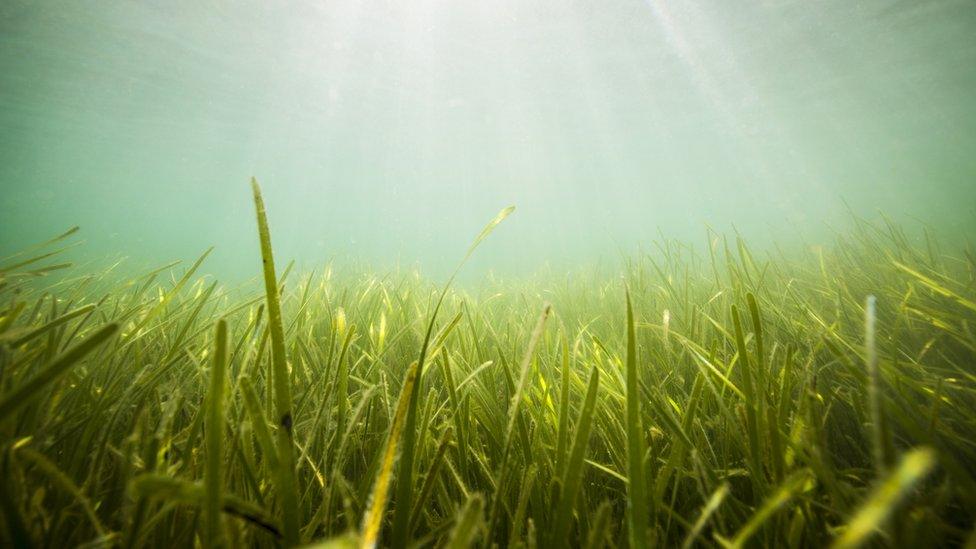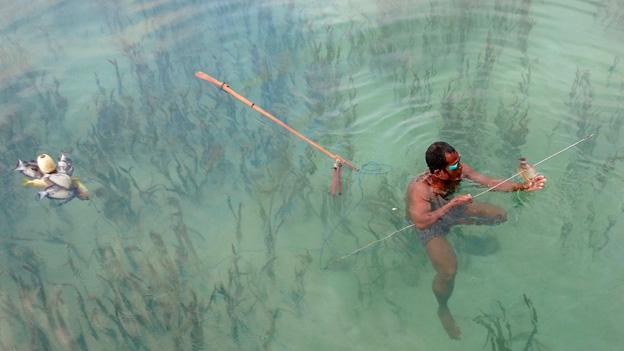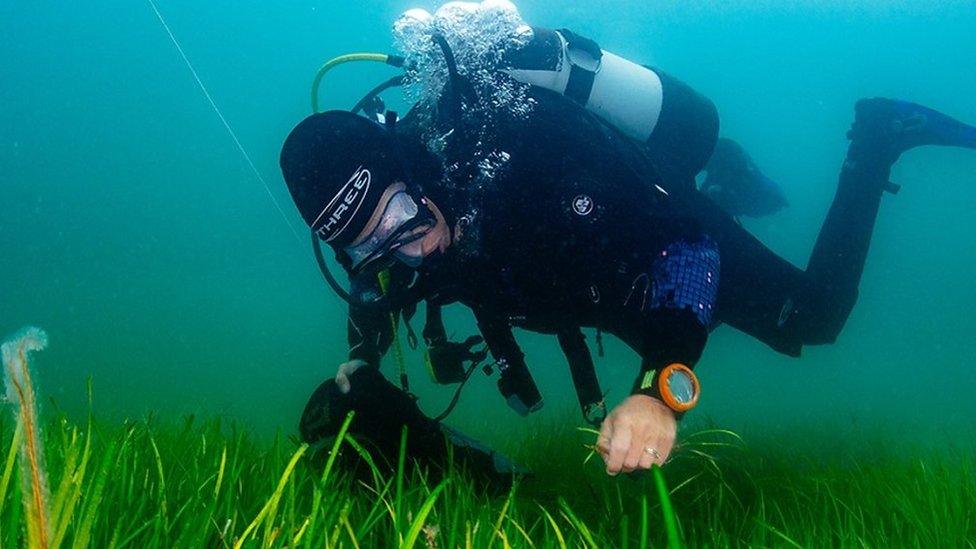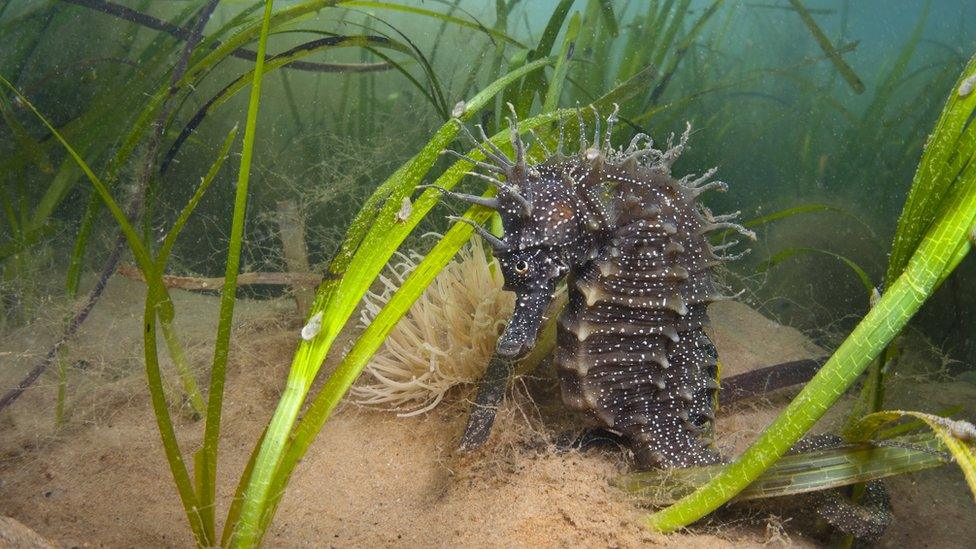Seagrass meadows get £2.5m for restoration work
- Published

Seagrass meadows have been severely reduced in English waters since the Industrial Revolution
A £2.5m funding boost to help protect seagrass in England has been announced by Natural England.
The project, external hopes to protect the endangered underwater meadows and provide habitat restoration in five areas across the south of the country.
Other work will include building environmentally-friendly boat moorings and other training.
The public body is contributing £1m, with the remaining coming from EU funding.
Seagrass meadows stabilise seabeds, clean surrounding seawater and absorb carbon.
The areas to benefit - which are Special Areas of Conservation - include the Essex Estuaries, Fal and Helford, the Isles of Scilly, the Plymouth Sound and estuaries, and the Solent Maritime.
'Win-win-win'
Natural England said seagrass beds and meadows had been severely reduced in English waters since the Industrial Revolution and needed protection because they were "easily damaged and slow to recover".
It said they were also threatened by anchoring, mooring and launching of recreational boats, as well as trampling from walkers and bait collectors.
Natural England's chief, Marian Spain, said the project was a "win-win-win for the planet, for people who use the sea and for the marine environment by protecting the delicate sea bed ... as well as providing new places for boats to moor".
The scheme has been awarded £1.5m from the EU's LIFE fund, which will not be affected by Brexit because it was agreed prior to it, Natural England added.
The project will run until October 2023.

Why is seagrass important?
It takes carbon from the atmosphere up to 35 times faster than tropical rainforests
It accounts for 10% of annual ocean carbon storage globally, despite only taking up 0.2% of the seafloor
It protects coasts from erosion
It is a habitat for many types of fish like cod, plaice and pollock
It produces oxygen
It cleans the ocean by absorbing polluting nutrients
Source: WWF, Sky Ocean Rescue, Swansea University
- Published17 November 2017

- Published4 September 2019

- Published4 September 2019
